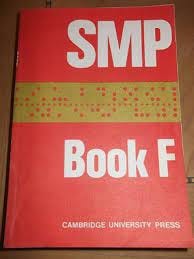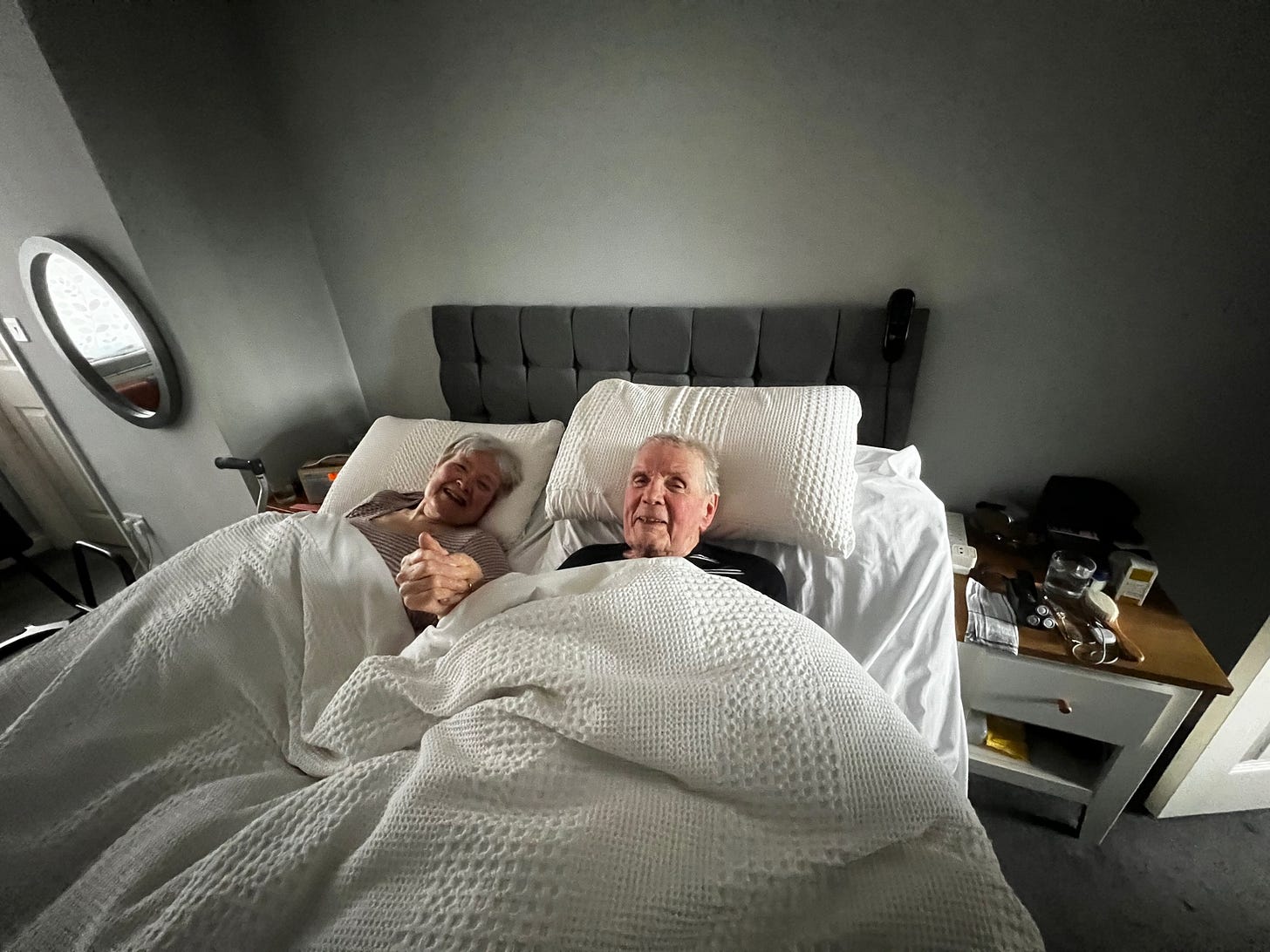ADHD, grief and lost textbooks
Untangling memories and a fresh perspective on life
If you’re new here, welcome! Perhaps you’ll consider joining us? Free subscribers receive this newsletter every week. Paid PoP Club members get access to a members-only health support & accountability group, regular Q&As with me, plus occasional behind-the-scenes content on health and politics.
In this edition:
Negative self-labels
Breath training
The power of walking in nature
Caring for a loved one
The hardest working laziest person I know
I'm caring for a terminally ill relative, which is paradoxically life-affirming. It's also ADHD awareness month. The internet is full of articles and posts about the condition. Both events have stimulated a deeply reflective mood. With trepidation, I feel I should make a contribution to the national ADHD discussion.
I'm pretty sure my dad had undiagnosed ADHD. He died last year, so we'll never know. It upsets me to think what inner pain he self-medicated because of the condition. Thinking about the genetic influences of ADHD helps me untangle the misunderstandings between us. And when I think of dad, I realise you have a lot of growing up to do when you have undiagnosed ADHD and become a parent aged 20.
People who get a diagnosis of ADHD in their middle years often report that they feel overwhelmed. I experienced this last year. Grieving for dad and understanding ADHD was quite an emotional load to carry.
The best way I can explain what happens immediately after a diagnosis is that you begin to question the labels you give yourself. The feeling is potent to the extent that you start to question your self-identity.
Despite diagnosis being the first stage of dealing with ADHD, it's hard work. Most self-identity labels are negative, so you inevitably drag up almost forgotten early trauma. Shame, insecurity and a sense of failure are the outputs caused by the early labels we give ourselves.
For example, I described myself as the hardest working, laziest person I knew for three decades. The word lazy has been like a ball and chain since adolescence. I could put in a 100-hour week and still feel inadequate because I wasn't working hard enough.
Memories are the weave of our self-identity. I remember being paralysed by the fear of a humiliating rebuke from Mrs Green, who couldn't comprehend how I could lose an expensive textbook so often. Diagnosis took me back to losing my SMP Maths textbook for the third time in a month in Class 3G of Sladen Middle School 1978.
Not being able to do maths homework because I'd lost my books created a label that I am a naturally rebellious person who doesn't do homework. Multiply these experiences by the hundred other childhood ADHD-linked events misunderstood by the authority figures and you realise how low self-esteem is often associated with the condition.
And yet even with the deeply embedded narrative created by ADHD events, a counter-narrative exists in a tiny whisper of the inner voice. It's hard to describe this feeling, but it's a bit like you believe the labels, but they don't "feel" accurate.
Then you get a diagnosis that explains you have had a neurological condition that has impaired your executive functioning since you were two years old. No wonder the labels don't feel accurate!
For a period after diagnosis, all those excruciating moments of failure are relived and analysed with a new filter:
The late essay submissions.
The lost suitcases.
The missed weddings.
The relationships breakdowns.
The impulsive outbursts.
The excesses.
Etc.
The emotional meltdowns and the thousand other inexplicable life events suddenly fit in to place.
Executive function refers to the cognitive abilities we need to pursue our goals. So a neurological condition that impairs executive functioning is a massive deal.
The Godfather of the ADHD community is an academic called Russell Barkley. He tells us that the strength of these seven skills judges executive function:
1. Self-awareness: Simply put, this is self-directed attention.
2. Inhibition: Also known as self-restraint.
3. Non-Verbal Working Memory: The ability to hold things in your mind. Essentially, visual imagery — how well you can picture things mentally.
4. Verbal Working Memory: Self-speech, or internal speech. Most people think of this as their "inner monologue."
5. Emotional Self-Regulation: The ability to take the previous four executive functions and use them to manipulate your own emotional state. This means learning to use words, images, and your own self-awareness to process and alter how we feel about things.
6. Self-motivation: How well you can motivate yourself to complete a task when there is no immediate external consequence.
7. Planning and Problem Solving: Experts sometimes like to think of this as "self-play" — how we play with information in our minds to come up with new ways of doing something. By taking things apart and recombining them in different ways, we're planning solutions to our problems."
Barkley goes on to say:
"These seven executive functions develop over time, in generally chronological order. Self-awareness starts to develop around age 2, and by age 30, planning and problem solving should be fully developed in a neurotypical person. Those with ADHD are generally about 30 to 40 percent behind their peers in transitioning from one executive function to the next. Therefore, it makes sense for children and adults with ADHD to have trouble dealing with age-appropriate situations — they're thinking and acting in ways that are like much younger people."
So, the 55-year-old me has a message from the 11-year-old me to Mrs Green. I didn't deliberately lose the textbooks and cared about my homework. It was a neurological impairment that helped me lose those books. And to the teacher who wrote in my report the year before, "works well in the right mood," my dopamine receptors were not working correctly in your very dull lessons. If I'd been on Ritalin, I'd have done your stupid homework.
Two of the 12 steps you go through at Alcoholics Anonymous are to have "made a list of all persons we had harmed, and became willing to make amends to them all" and "made direct amends to such people wherever possible, except when to do so would injure them or others."
I'm not an alcoholic, but I wonder whether an adult diagnosis of ADHD should require some explanation for past behaviours to our loved ones. It would help lift a hefty load.
Becoming a Peer
I found out I’d been made a Peer at 4.15 pm yesterday when a former colleague texted me a link to the Downing Street website. The problem for most of the new peers was that the list was leaked a week before. You don’t get an appointment confirmation letter or a phone call from the government before the announcement. So this was a rare case of the media knowing more about us than we knew about ourselves.
Lady Brittan has said in the Telegraph this morning that she hoped I would make a good peer and that “lessons have been learned.” I will never be able to put right the pain caused, but I hope I can make amends by assisting Lady Brittan in her calls for metropolitan police reform.
Reading
I’m proud to be a trustee of ADHD UK. It’s a new charity started by people with ADHD for people with ADHD. If any of the above resonates with you, there is lots of help and support available on their website and social media channels.
Fellow Substack writer, author and teacher Susannah Conway has written about her experience of getting a diagnosis of ADHD at 49 in a moving post here.
I was very interested to read this new research which shows that daily breath training can work as well as medication to reduce high blood pressure. Participants in the study used a handheld resistance-breathing device to give their diaphragm a workout. Along with sauna bathing, I’ll look to see how I can add this to my daily routine.
Are you struggling to get yourself off the sofa? It’s hard at this time of year. I’ve written many times about how my daily steps habit helped me shift the weight and boost my mental health. If you need a little extra motivation today, consider this pep talk from the Harvard Business Review Archive: don’t underestimate the power of a walk.
And if the Harvard Business Review doesn’t motivate, take a look at this study which seems to prove that a walk in nature reduces amygdala activity in the brain, which may protect our mental health.
Happy Anniversary
My mum and step father celebrated their 25th wedding anniversary by holding hands and having a lie in this week. I remember writing in their wedding day card “are you sure you’re not rushing into anything?” because they’d been together nearly 20 years before they tied the knot.
Barry has dementia and is the family member we’re caring for because he is very poorly with other ailments. He is surrounded by love. And he laughs at the same jokes every new day. Happy anniversary to them. They are a fine example of how a couple should grow old together.



Tom, I know I’m late to this post but I only just discovered your substack!
I got diagnosed with ADHD at 31, and like you, all the lost school books, homework etc made sense in hindsight, but I beat myself up so much at the time!
I recently become a people manager and I’ve been purposefully open about my diagnosis to break the stigma.
Thank you for speaking up about this.
I’ve been wanting to write a post about ADHD for a while and this has inspired me along.
And congratulations on the peerage!
Hi Tom. Congratulations on the peerage. I hope you will continue to highlight these important health and well being issues that you have focussed on over the last few years. Best of luck xx